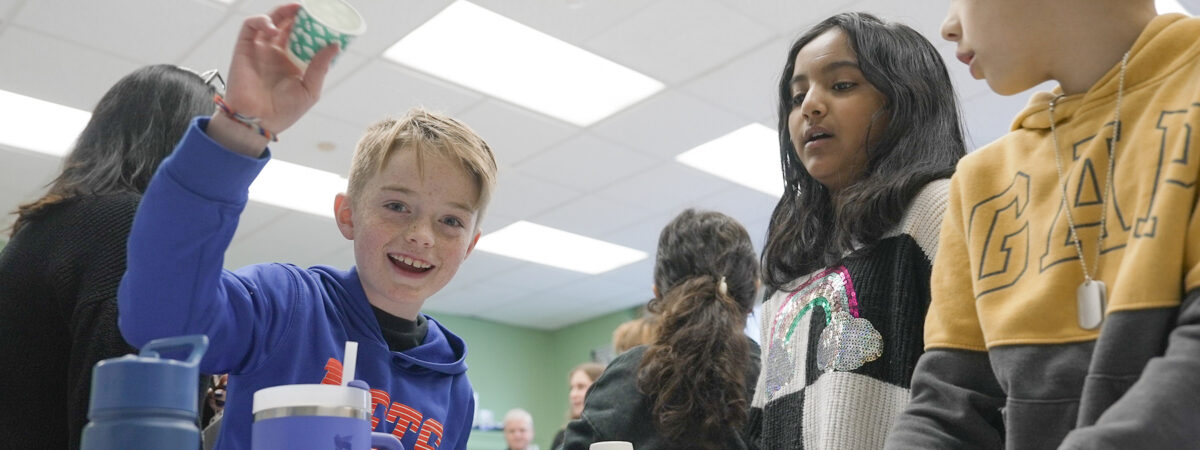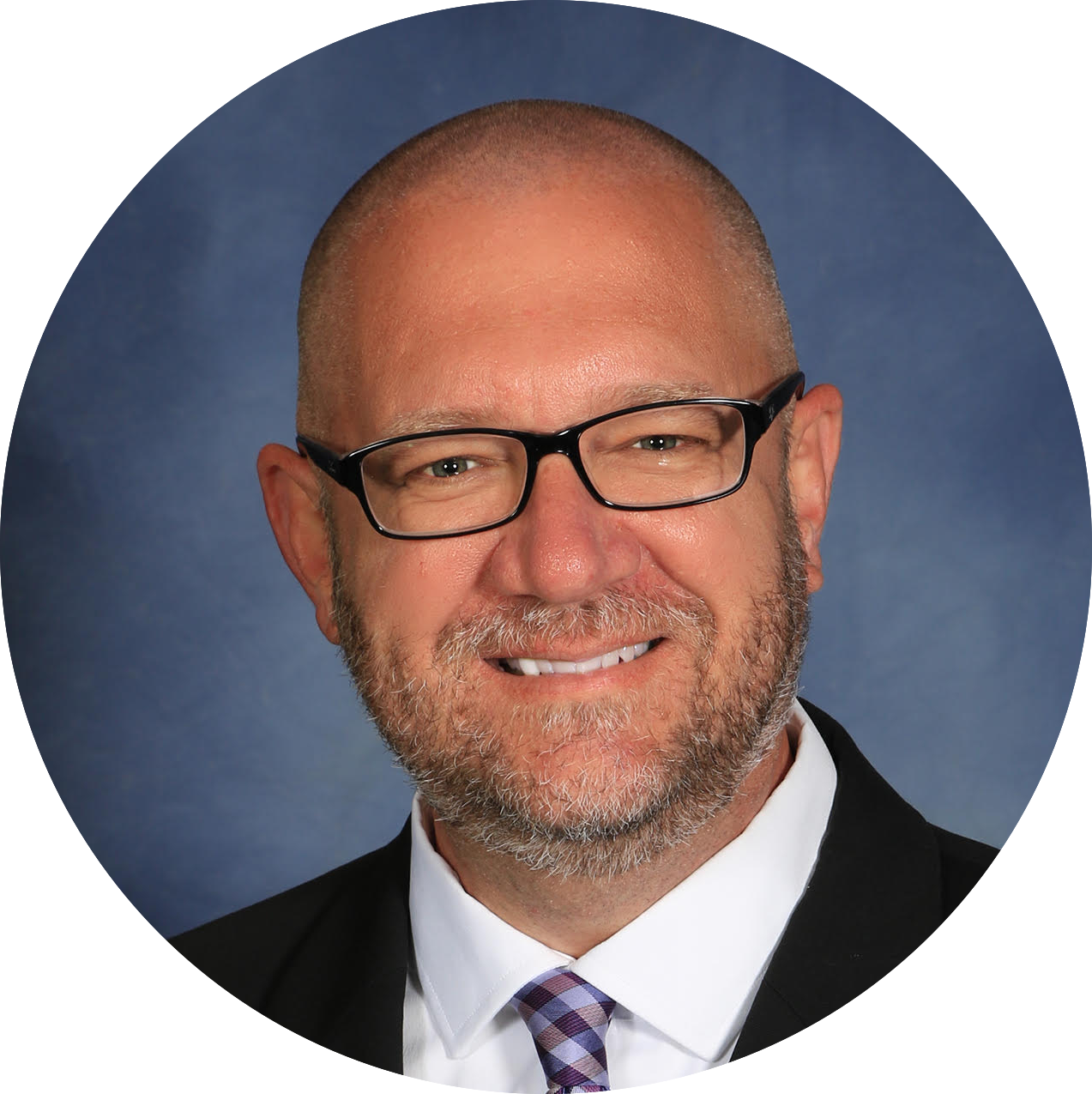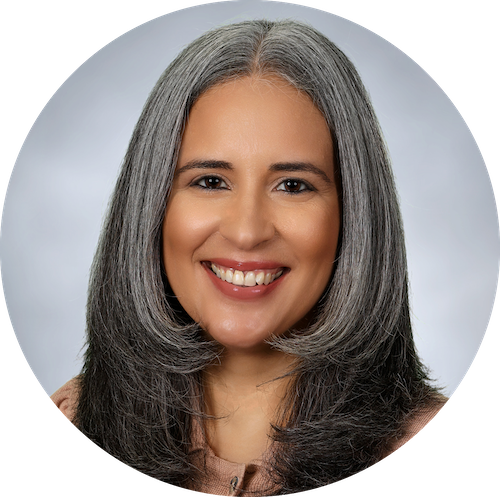
We recently sat down with two League of Innovative Schools leaders — Dr. Jeremy Tucker, superintendent of Liberty Public Schools (Missouri), and Dr. Alexandra Estrella, superintendent of Norwalk Public Schools (Connecticut) — to understand what’s top of mind for them as they begin a new academic year. Read on to hear what they shared about key priorities, top challenges, opportunities for growth, and more.

Dr. Jeremy Tucker, Superintendent, Liberty Public Schools (Missouri)
Dr. Jeremy Tucker (Liberty Public Schools): In particular, this year we are focused on real-world learning opportunities. Our goal is to offer real-world learning opportunities — which includes things like client-connected projects, internships, dual credit, college credit experience and access, entrepreneurial experiences, industry-recognized credentials, and apprenticeships — to 100 percent of our graduates by the time they leave us.
Outside of the district, we’re also involved with our state department of education and a group of collaborative districts to redesign and rethink what assessment and accreditation looks like in Missouri. By shifting the standard assessment approach and scaling “market-value assets experiences” that various industries are seeking, we can move away from traditional models of learning to a more competency-based learning mindset.
Dr. Alexandra Estrella (Norwalk Public Schools): We’re starting this year by implementing the portrait of a graduate. We spent last year identifying the key components and qualities that we want our scholars to have upon graduation, and then learning from other districts about what worked well for them.

Dr. Alexandra Estrella, Superintendent, Norwalk Public Schools (Connecticut)
This year, we’re focusing on critical thinking because it hits many of the other competencies, like being a self-directed learner and being a global citizen. With the evolution of AI and other digital learning tools, we know that we need to equip students with the skills and the ability to strategize and problem-solve. We are preparing scholars for jobs that are yet to be created, so we always have to think about the everlasting skills that students need so that regardless of where they branch off, they have the tools to succeed.
Tucker: Student mental health and trauma is a big challenge for us. We’re fortunate to be one of about seven or eight counties in our state that has access to the Children’s Services Fund, which is a tax that provides revenues to school districts for the sole purpose of supporting mental health initiatives. This allows us to partner with external providers and provide support to our counselors, social workers, and specialists, offer professional development to staff, and, most importantly, connect our students and their families with mental health specialists and support outside of the district.
The challenge we’re seeing with that is a supply and demand issue, because mental health specialists have waiting lists. We feel incredibly fortunate that we have county support for student mental health because many of our neighbors across Missouri and certainly across the country don’t have that dedicated revenue stream.
Estrella: One of the biggest challenges we had was access to educational technology. This has included both staying at the cutting edge of what tools are available in the industry, as well as having the resources to provide professional learning for our staff around effectively implementing AI and all the technological tools to enhance what’s happening in the classroom.
Being able to apply and obtain grant opportunities that provided hardware, software, and broadband connectivity for our middle and high school scholars has been a game-changer, because it allowed us to close the digital divide in our district, particularly with broadband connectivity, due to the diverse socioeconomic backgrounds of our scholars.
Estrella: I’m looking to the League to learn about new and innovative ways in which we can utilize digital tools most effectively in the classroom, and leaning on the League for professional learning and models of practice. There is no better way to learn than by seeing something first hand and then adapting it to meet our district’s needs.
Tucker: The League gets credit for a lot of our work, because when we attend convenings and school visits, we learn alongside colleagues and peers from other districts that are thinking about the same challenges and reimagining what things might look like. We leverage the League as one of our partners in our learning ecosystem that has truly shifted and shaped where we’re headed as a school district.
Estrella: The timing of our participation in the League’s High School Redesign Learning Collaborative couldn’t be more perfect. We are in the process of building a brand new high school and have been fully immersed in rethinking physical spaces in the school, what learning experiences look like, and what the classroom is intended for. Through the League Learning Collaborative, we are able to take ideas and insights [from other districts] around what we could do differently so that, as we design programming and this new facility, we stay true to what students need for a workforce that is yet to be designed.
Tucker: I am interested to learn more from other League districts who are implementing personalized real-world learning and competency-based learning. Whether other districts are ahead of us, right where we’re at, or just getting started, they can learn from us, and vice versa.
Tucker: One of the phrases we kicked off our year with is pretty simple: What you do matters.
You wear a hat as a friend, a colleague, a son, a daughter, a sister, a mom, a husband, a partner, a wife. Rather than focusing on you solely as an employee of our district, we’re having conversations around your well-being, because only then can you bring your best self to your work. If we can figure that out as adults, then hopefully, we can model that for our kiddos. That’s probably more meaningful than anything you’re going to learn from a textbook and hopefully, that can carry forward with you in life. That’s what makes us hopeful.
Estrella: One of the things that always motivates me is the fact that I am in service of children. I am in service of the next generation of thinkers. Being a part of that is one of the best things in the world and the reason why I do this work. Anytime the work is challenging, I always make it a point to visit a school or place where students are gathering, because seeing them in action and the value of the work that we do makes everything worth it. It reinvigorates me in wanting to continue finding creative ways to effectively strengthen our practice so that students have what they need.
Want to learn more about the work of League districts?